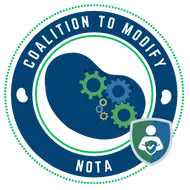
Modifying NOTA - Our Top Priorities are Ethics and Safety
Preventing Exploitation of Vulnerable Americans
Skeptics Claim: Critics argue that a tax credit for living kidney donations may disproportionately affect low-income individuals. Those who are financially disadvantaged may be more likely to be enticed by the monetary reward, leading to a situation where the poor are coerced into making life-altering decisions to meet their economic needs.
How we mitigate this concern:
Culturally Competent Education and Outreach through enhanced culturally-competent-engagement, and collaboration with community organizations
Independent Evaluation through the appointment of neutral third parties, ensuring informed consent, assessing psychological well-being, confidentiality, and privacy
Creating Safeguards Against Coercion through independent evaluation, and implementing a mandatory cooling period through the rigorous evaluation process
Transparency and Oversight by establishing a regulatory body, reporting and monitoring mechanisms
"With the proposed safeguards and education, this plan provides a mindful approach to kidney donation, protecting those most vulnerable while meeting urgent needs."
- Trisha Phillips, Kidney Donor
Community Organizer/ Advocate
Culturally Competent
Education and Outreach
Culturally-competent-engagement: Tailor communication and engagement strategies to be culturally sensitive and inclusive, reaching diverse communities effectively.
Collaboration with community organizations: Partner with local nonprofits, faith-based organizations, and community leaders to educate and engage potential donors in their own social and cultural contexts.
Independent Evaluation
Neutral third-party evaluators: Appoint impartial professionals to conduct assessments, removing potential bias or undue influence from the donation process.
Comprehensive Informed consent process: Ensure potential donors fully understand the implications of their decision, covering all possible outcomes, risks, and post-donation scenarios.
Psychological well-being checks: Regularly assess the mental health of potential donors, ensuring they are psychologically capable of making this serious decision.
Confidentiality and privacy: Maintain stringent standards of data security and privacy, respecting the sensitive nature of health and personal information involved.Fair Compensation
Creating Safeguards Against Coercion
Independent Evaluation: Utilize the same neutral third-party evaluators to prevent any form of coercion, making sure donors are making a voluntary and unpressured decision.
Mandatory cooling-off period: Introduce a mandatory period for potential donors to reflect on their decision before proceeding, helping prevent impulsive decisions and providing time for them to consult with family, friends, or counselors.
Transparency and Oversight
Establishing a regulatory body: An independent agency is to be created which will: Manage and oversee the entire process of compensated kidney donation. Uphold the ethics and legality of the process. Ensure the adherence to guidelines and protocols by all stakeholders
Regular reporting and monitoring: Robust tracking systems are to be implemented to ensure the accurate monitoring of every stage of the donation process. Regular reports are to be made public to ensure transparency and maintain public trust. Internal and external audits are to be conducted regularly to ensure the adherence to regulations and identify areas of improvement.
Legal enforcement: Strict legal measures are to be enforced for any deviation from the guidelines. Legal protections for donors to be put in place to ensure their rights are protected.
Feedback mechanisms: Systems are to be put in place to receive and process feedback from all stakeholders. Use feedback to continuously improve and adapt processes to better serve all parties involved. Partnerships with other agencies:
Collaborate with relevant government and non-government organizations for added oversight and support. Coordinate with medical facilities, kidney exchange networks, and transplant centers for efficient and safe organ allocation.
Research and Development: Engage in continuous research to update and refine the process, based on evolving medical science, ethics, and societal perspectives.
Top Priorities: Ethics and Safety






